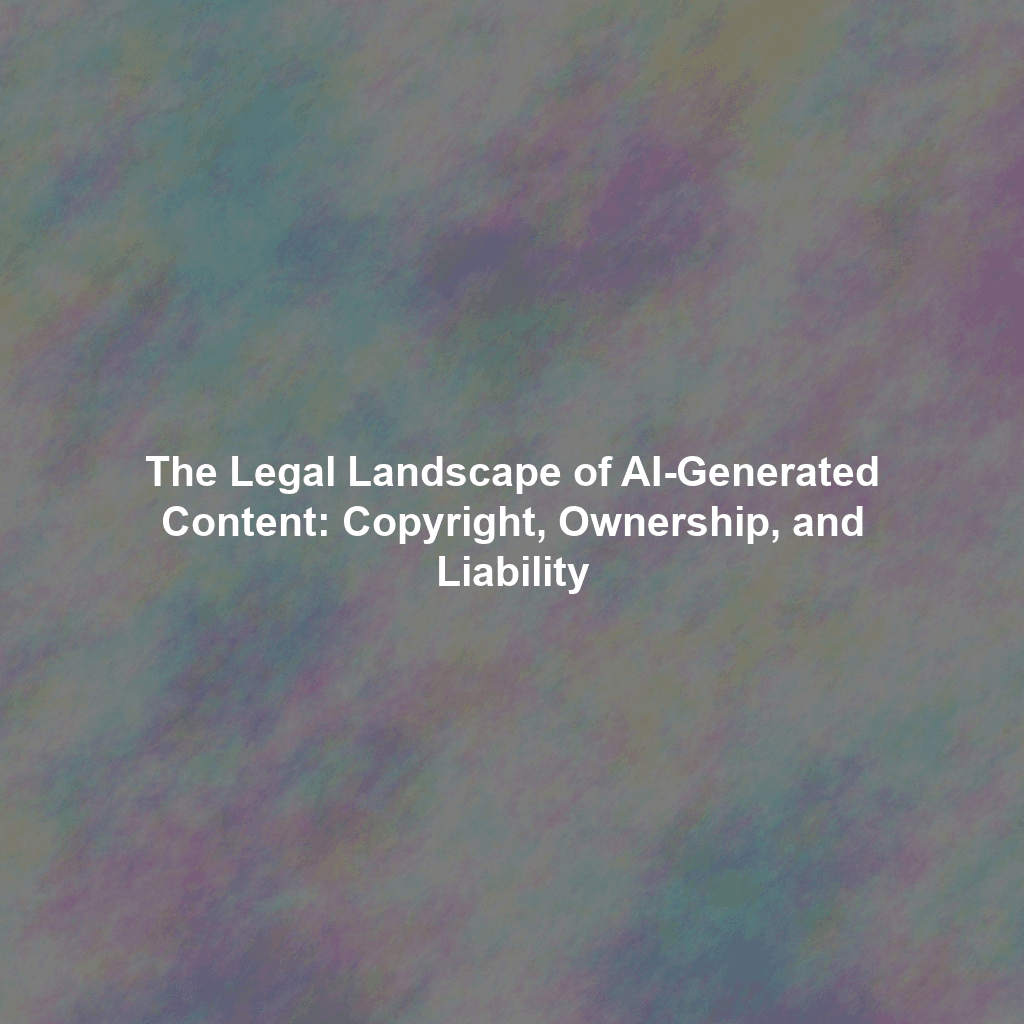The rise of generative AI has revolutionized content creation, offering unprecedented speed and efficiency. From crafting blog posts to generating marketing copy, AI tools are becoming increasingly integrated into our workflows. But with this technological leap comes a complex web of legal considerations. As someone deeply involved in the intersection of AI and content, I’ve seen firsthand the confusion and uncertainty surrounding copyright, ownership, and liability when AI is involved. This article aims to demystify these issues, providing a clear overview of the legal landscape and offering practical guidance for navigating the potential pitfalls.
The Content Quality Paradox: AI vs. Human Creativity
Before diving into the legalities, it’s crucial to understand how AI-generated content currently stacks up against human-created content. While AI excels at mimicking styles and generating text based on prompts, it often falls short in originality, emotional intelligence, and nuanced understanding. This has direct implications for SEO optimization, grammar, and even the potential for plagiarism, inadvertently raising legal flags.
Style and Grammar: Is AI Perfect?
AI can produce grammatically correct and stylistically consistent content. However, it often lacks the subtle flair and unique voice that distinguishes human writers. AI tends to rely on patterns and may generate repetitive or bland text. This can negatively impact engagement and brand identity. While AI tools are improving, human editing and refinement remain essential to ensure high-quality output that resonates with the target audience.
SEO Optimization: Can AI Truly Optimize Content?
AI can assist with SEO by identifying relevant keywords and optimizing content structure. However, true SEO optimization requires a deep understanding of search engine algorithms, user intent, and competitive analysis. AI might stuff keywords or generate generic content that fails to provide real value to readers, ultimately hurting search rankings. A human SEO expert is still crucial for strategic planning and implementation.
Originality and Plagiarism: A Major Concern
AI models are trained on massive datasets, meaning they can inadvertently reproduce existing content. This raises serious concerns about plagiarism and copyright infringement. Even if the AI-generated text is slightly modified, it might still be considered a derivative work, subject to copyright restrictions. Thorough plagiarism checks and human oversight are essential to mitigate this risk.
Copyright Ownership: Who Owns the AI-Generated Content?
This is perhaps the most contentious issue in the legal landscape of AI-generated content. Current copyright laws are designed for human creators, and the application to AI-generated works is unclear and evolving. Several key questions arise:
The Human Author Requirement
Copyright law generally requires human authorship. If an AI generates content autonomously, without significant human input, it’s unlikely to be protected by copyright. The U.S. Copyright Office has explicitly stated that it will not register works created solely by artificial intelligence.
The Role of the Prompter
If a human provides detailed prompts and guides the AI’s creative process, they might be considered the author and therefore own the copyright. However, the extent of human involvement required to establish authorship remains unclear and will likely be determined on a case-by-case basis by the courts.
Terms of Service and Licensing Agreements
The terms of service of the AI tool you’re using are crucial. Many platforms retain ownership of the generated content or grant you a limited license to use it. Always carefully review the terms before using AI-generated content for commercial purposes.
Liability for Inaccuracies and Defamation
AI can generate inaccurate or misleading information, which could lead to legal liability for defamation, negligence, or false advertising. Who is responsible when AI gets it wrong?
The Publisher’s Responsibility
Even if the content is generated by AI, the publisher (e.g., the website owner, the marketing agency) is ultimately responsible for its accuracy and legality. It’s crucial to fact-check AI-generated content and ensure it complies with all applicable laws and regulations.
The AI Provider’s Potential Liability
The AI provider might be held liable if the AI system is negligently designed or fails to adequately prevent the generation of harmful content. However, this is a complex area of law, and the extent of the provider’s liability will depend on the specific circumstances.
Mitigating Legal Risks: Best Practices
Here are some practical steps you can take to minimize the legal risks associated with AI-generated content:
- Review the AI Tool’s Terms of Service: Understand the ownership and usage rights.
- Maintain Human Oversight: Always edit and fact-check AI-generated content.
- Disclose AI Involvement: Consider disclosing that AI was used in the content creation process, especially for sensitive topics.
- Conduct Plagiarism Checks: Use plagiarism detection tools to ensure originality.
- Consult with Legal Counsel: Seek legal advice if you have any concerns about copyright or liability.
Conclusion: Navigating the Future with Caution and Creativity
AI-generated content offers tremendous potential, but it also presents significant legal challenges. By understanding the complexities of copyright ownership, liability, and the current limitations of AI in terms of quality, originality, and accuracy, you can navigate this emerging landscape with caution and creativity. Remember that human oversight, ethical considerations, and a commitment to legal compliance are essential for harnessing the power of AI responsibly and avoiding costly legal pitfalls. The legal landscape is constantly evolving, so staying informed and adaptable is key to success in this exciting new era of content creation.
 Skip to content
Skip to content

